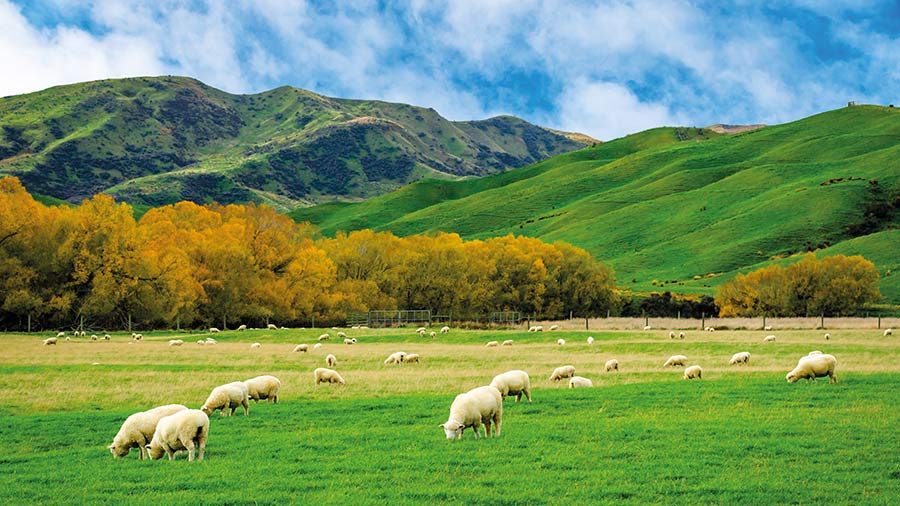Opinion: Mutual opportunities abound from UK-NZ trade deal
 © Meawstory15Studio/Adobe Stock
© Meawstory15Studio/Adobe Stock The UK-New Zealand free trade agreement is a historic deal that helps bring our two nations’ respective agricultural communities together.
The agreement goes beyond the liberalisation of trade in goods between the UK and NZ.
There are chapters covering animal welfare and the shared commitment to the environment and climate change, demonstrating global leadership on these issues.
See also: Farmers under threat as ministers sign UK-NZ free-trade deal
About the author

Alex Gowen is UK manager of Beef and Lamb New Zealand, the farmer-owned organisation which invests farmer levies in programmes that promote and grow the sector. Here he argues the benefits for both sides of the UK-NZ trade agreement.
Throughout the UK farming community, industry groups and campaigners have rightly raised concerns that food entering Britain could be made to lower standards.
Meanwhile, producers have feared that a rise in cheaper imports could undercut their market share.
However, we see this agreement as an opportunity to help foster and improve an already strong alliance, building on long-established trade, movement of people, and farming know-how.
As a farmer-led organisation, we know all too well the growing pressures the sector is facing.
Many of these are seen in both parts of the world, whether this is the growing legislative burden on farmers, afforestation of productive land, responding to climate change, or maintaining consumer confidence in the sector through farm assurance schemes.
Similarities with UK
Despite the myths, New Zealand is a world leader in sustainable farming practices. Our Southern Hemisphere production seasons follow the grass curve at opposite times of the year to the UK.
Moreover, global protein demand remains higher than supply.
In global markets, with a growing middle class, this offers a great opportunity to supply discerning consumers with grass-fed red meat year-round, create a strong preference for our products, and deliver value and growth to the sector.
The challenges UK farmers face in combating the anti-meat agenda and entering new markets are the same facing Kiwi farmers.
We should be working together to advocate red meat as a healthy product that can deliver positive benefits for the environment for generations to come, and work to improve global environmental, sustainability, animal welfare, and food quality and safety standards.
The similarities in UK and NZ farming already support thriving agritech exports, demonstrating the partnership benefits right to the farm gate.
Partnership benefits
The list is long, but it covers genetics, stock management software and infrastructure, financial planning tools, and parasite diagnostics, to name a few.
The renewed opportunity to travel for young farmers up to 35, for example, will create opportunities and benefit the broader farming systems in both countries.
This can improve agriculture in both countries by providing opportunities to share knowledge and best practices on sustainability, profitability, and animal welfare in sheep and beef farming.
We are very keen to build up relationships of this kind to create stronger, more resilient farmers.
We also believe the UK-NZ free-trade agreement is one of the stepping stones for the UK to join the Comprehensive and Progressive Agreement for Trans-Pacific Partnership (CPTPP).
Beef and Lamb New Zealand sees potential in co-supply opportunities for the UK into new markets among CPTPP members.
This will help ensure UK products expand into new markets, taking advantage of our complimentary seasons, and increase consistency of supply to these markets, contributing towards targets such as the NFU’s new “30, 30, 30+” ambition – to grow food exports by 30% by 2030, to at least £30bn.
With an estimated two billion more middle-class consumers worldwide by 2050, this partnership can help make a concerted effort to expand production to new markets around the world.
The UK-NZ trade deal lays the foundations for what can be a turning point for our two nations in forging a new, prosperous future for the farming industry.
